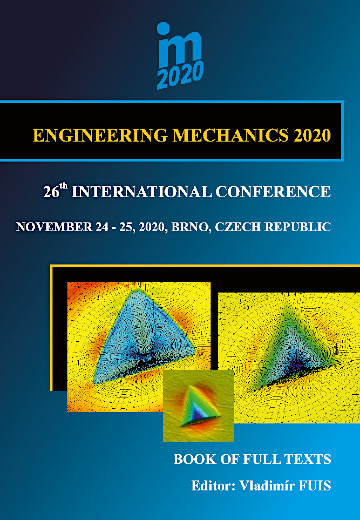Proceedings Vol. 26 (2020)

ENGINEERING MECHANICS 2020
November 24 – 25, 2020, Brno, Czech Republic
Copyright © 2020 Brno University of Technology Institute of Solid Mechanics, Mechatronics and Biomechanics
ISSN 1805-8248 (printed)
ISSN 1805-8256 (electronic)
list of papers scientific commitee
pages 388 - 391, full text
The research aimed to assess the effect of various types of metro-rhythmic stimulation and the manner of their application on gait symmetry in healthy individuals. Research-related tests involved a group of 22 adults without locomotor function disorders. The test participants were divided into two equal groups: group 1 - persons, who were not informed how to behave after hearing sounds (stimulation), group 2 - persons instructed before a test to walk in the rhythm of music (stimulation). The tests of locomotor functions were performed using a Zebris FDM-S treadmill. All of the tests involving sound stimulation were performed for a preferable gait velocity. The analysis involved a change in the index of stepping time symmetry and the length of a step during gait with various types of sound stimulation (arrhythmic stimulus, rhythmic stimuli at a different rate). It was demonstrated that short-term rhythmic sound stimuli at the rate equal to stepping frequency at a preferable gait velocity affected the symmetrisation of stepping time in healthy adults, regardless of whether they had been informed how to react to stimulation. A short-term effect of the RAS on the symmetry of step length was not observed.
back to list of papers
Ownership of copyright in original research articles remains with the Authors, and provided that, when reproducing parts of the contribution, the Authors acknowledge and/or reference the Proceedings, the Authors do not need to seek permission for re-use of their material.
All papers were reviewed by members of the scientific committee.

 Powered by
Imce 3.20 © 2023, Pavel Formánek, Institute of Thermomechanics AS CR, v.v.i. [generated: 0.0139s]
Powered by
Imce 3.20 © 2023, Pavel Formánek, Institute of Thermomechanics AS CR, v.v.i. [generated: 0.0139s]